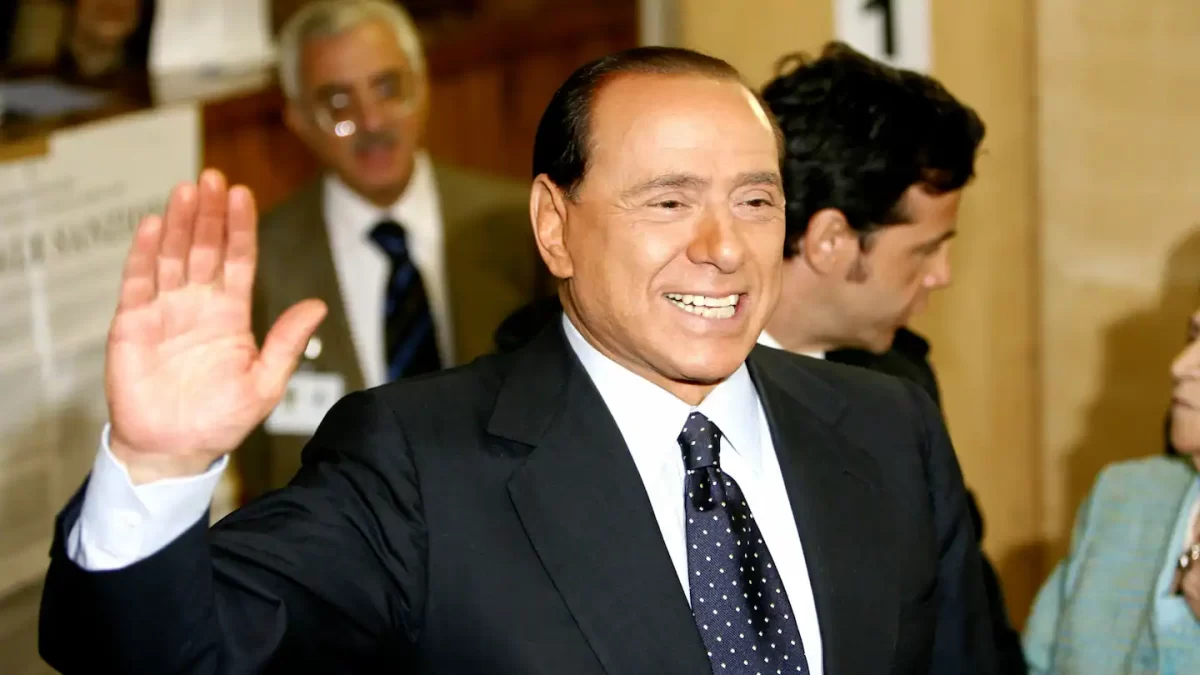Silvio Berlusconi, the three-time Prime Minister of Italy and owner of the media empire Mediaset, passed away at the age of 86 due to cardiac complications in San Raffaele Hospital, Milan. The Milan-born entrepreneur revolutionized telecommunications and faced numerous legal and personal scandals. He could not overcome the chronic leukemia he suffered from, debunking the myth of his immortality spread by his personal physician. Berlusconi was a key architect of populist Italy at the turn of the century.

Media and Business Empire
Over the last quarter-century, Berlusconi was Italy’s most influential figure. He extended his control over communication and entertainment channels, tapping into a growing middle class that dominated the country’s consumption. He revolutionized communication and modernized television, founded the first market-driven party/business, and established a culture of success, cronyism, and nepotism that permeated Italy. Berlusconi combined politics, sports, and advertising in a magnetic mix that set the stage for phenomena such as Trumpism almost two decades later.
However, he faced numerous charges for underage prostitution and illegal wiretapping, had his ties to the Mafia and the dubious origin of his fortune investigated, and flaunted his friendships with dictators. In the end, he was only convicted of tax fraud, a penalty that led to his political disqualification and marked the beginning of his decline.
Rise to Power
Berlusconi, the son of a middle-class family from Milan, showcased himself as a self-made businessman. He built his empire on the foundation of large urban complexes in Milan, appealing to the aspirations and vulnerabilities of Italians. He secured the money to purchase his first plot of land through a loan from the owner of the bank where his father worked. However, the uncertain origin of that sum has triggered years of investigations by the Anti-Mafia Prosecutor’s Office, based on his proven connections with members of Cosa Nostra.
Through his experiments, he began to merge his media ventures, creating an intricate puzzle by purchasing small television stations that would ultimately result in Canale 5, the spearhead of the expansion of a political and cultural narrative that even reached Spain through Tele5.
Conquest of Power
Berlusconi created an astonishing media network that no one could connect to his larger plan. He sought to increase his influence through Italy’s secular religion, soccer, and bought AC Milan in 1986. A club that was struggling despite past successes, AC Milan became one of the best teams in Calcio history under his presidency from 1986 to 2017, winning five European Cups and eight leagues.
Forza Italia, a political party composed of a diverse group of Finninvest employees, opportunists, and old representatives of Christian Democracy, was founded in 1993 and won elections the following year. Berlusconi then became prime minister three times (four if counting the 2005 reshuffle) in the next 17 years.
The revolution led by Forza Italia was unprecedented, sowing the silent seeds of all the phenomena that would sprout years later, from Matteo Renzi to the Five Star Movement, and Matteo Salvini. However, his political project’s success ended in 2011 after a long history of excesses and disastrous management of the Italian economy.
Decline and Legacy
Silvio Berlusconi had to resign, and since then, his party, Forza Italia, has been progressively losing relevance, reduced to a crude political instrument for protecting his business interests. Berlusconi’s last major political move was to facilitate the entry of almost all the right-wing parties into Mario Draghi’s government, which ultimately led to the rise of Giorgia Meloni as the leader of the new right-wing coalition.
Even in his final years, Berlusconi was an influential figure in Italian politics, helping to construct the first far-right government in a major European Union country and opening the door for the Italian experiment to be replicated in neighboring states.


